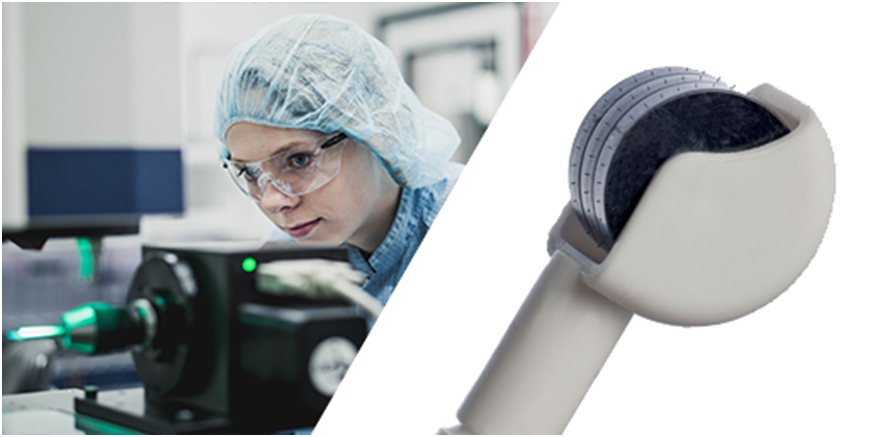![Medical Product Development [Source: MTD Micro Molding ]](https://fabbaloo.com/wp-content/uploads/2020/05/MedAccred_img_5eb094fb9a84a.png)
Charles Goulding and Preeti Sulibhavi of R&D Tax Savers discuss precise medical 3D printing.
MTD Micro Molding: Injecting Precision into the Industry
Established in 1972, MTD Micro Molding custom-crafted, ultra-precision molded components meet the exact requirements of companies in the medical device industry. In-house tooling, unparalleled bio-absorbable molding expertise, ISO 13485 certified systems, and state-of-the-art equipment make MTD the micro molding manufacturer of choice for many large pharmaceutical companies. MTD Micro Molding utilizes an accredited plastics injection molding process that is high quality at high volumes. Their exclusive focus on medical micro molding ensures successful delivery of complex custom products that cannot be easily replicated in quality and precision.
MedAccred’s AC8160: Setting the Bar
This series of challenging and highly technical process pilot audits were launched in 2016 and MTD Micro Molding was one of two companies awarded the certification (the other being BMP Medical). “Be the first, be the best…Ever forward,” have been the guiding principles for MTD Micro Molding. This accreditation exemplifies those principles and creates an unrivaled experience in bio-absorbable molding and other critical manufacturing processes. MedAccred’s managed supply chain oversight program bolsters patient safety. Rigorous critical process audits and successful resolution of audit findings are what make this certification noteworthy.
![Overmolding Process [Source: MTD Micro Molding]](https://fabbaloo.com/wp-content/uploads/2020/05/MedAccred2_img_5eb094fc2bfd7.png)
Scaling Production en Masse for Success
MTD Micro Molding, being on the technological forefront that it is, has weighed in on the 3D printing movement. Dennis Tully, MTD’s President, believes that “ultra-precise 3D printing can be done on a micro scale.” Tully believes that 3D printing technology is already expanding and scaling up the technology while adding more options for materials. Advancing this technology is critical for use in the micro molding medical device world for developing successful prototypes.
Focusing exclusively on medical micro molding products utilizing an accredited plastic injection molding process sets MTD Micro Molding apart from its competitors, ensuring its success. As an active member of the MedAccred Plastics Task Group, comprised of technical experts from numerous global medical device OEMs, MTD Micro Molding has set the standard for the medical device industry. Peter Russo of the New Jersey Manufacturing Extension Program, NJMEP, coordinates and assists companies in attaining this certification on a national scale. NJMEP is committed to helping manufacture success in New Jersey and beyond.
![Manufacturing Bio-absorbable Components [Source: MTD Micro Molding ]](https://fabbaloo.com/wp-content/uploads/2020/05/MedAccred3_img_5eb094fca01c9.png)
The Research & Development Tax Credit
Enacted in 1981, the now permanent Federal Research and Development (R&D) Tax Credit allows a credit that typically ranges from 4%-7% of eligible spending for new and improved products and processes. Qualified research must meet the following four criteria:
-
Must be technological in nature
-
Must be a component of the taxpayer’s business
-
Must represent R&D in the experimental sense and generally includes all such costs related to the development or improvement of a product or process
-
Must eliminate uncertainty through a process of experimentation that considers one or more alternatives
Eligible costs include U.S. employee wages, cost of supplies consumed in the R&D process, cost of pre-production testing, U.S. contract research expenses, and certain costs associated with developing a patent.
On December 18, 2015, President Obama signed the PATH Act, making the R&D Tax Credit permanent. Since 2016, the R&D credit has been used to offset Alternative Minimum Tax (AMT) for companies with revenue below $50MM and, startup businesses can obtain up to $250,000 per year in payroll tax cash rebates.











FELIXprinters has released a new bioprinter, the FELIX BIOprinter, which is quite a change for the long-time 3D printer manufacturer.